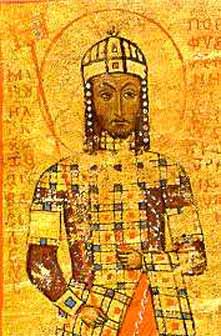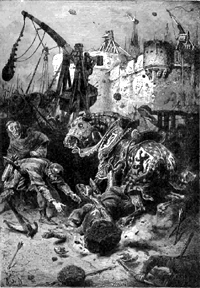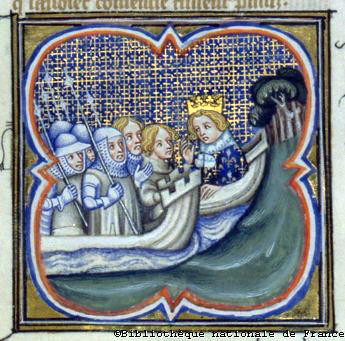The death of John II was greatly mourned throughout the Empire. His reign of peace and prosperity was greatly appreciated by the Orthodox populace and he is one of the most celebrated Emperors ever. His successor was Manuel I Komnenos. Manuel was the favorite son of John II and therefore, the army proclaimed him as Emperor. And so, with military backing, the fourth son of John II was crowned Emperor in Aghia Sofia in 1159.

A depiction of Manuel I Komnenos
Manuel I was a strong-willed man, ready to defend his Empire to the death. He was primarily a general, rather than a politically-minded Emperor. He would rather spend his days hunting or leading armies to crush rebels than in a lavish palace. He never got a chance to show his military prowess in the early years of his reign. From 1159 to 1168, the Empire repeated the same quiet that was present during John II’s reign.
However, across the Adriatic Sea, two newly emerging empires were about to challenge Orthodoxy. The Papacy, under Alexander III, soon to be known as “the Warrior,” had made an alliance with Lotharingia to reestablish Catholic power in the East. The first step of this was to take back southern Italy from the Orthodox. So, in 1169, with Lotharingia backing and troops, Alexander III sent his generals and their armies into Orthodox Italy, starting the Papal-Orthodox War.

A depiction of Alexander III
Europe was once again shocked at the actions of their Pope, but Alexander III, like Eugene III before him, fabricated claims of Satanism and heresy against Manuel I and this quelled those who protested the militant Pope’s actions. Emperor Manuel I would need to be very careful in every move he made against the Papacy. If he were to lose control of his men and allow any unusually large massacre of Papal troops, the counterattacks by the Catholic world would be devastating.
Thankfully, however, Orthodoxy had more than enough money to bribe the rulers of Europe. So Manuel I sent out as many diplomats as possible to quiet the leaders of Europe. Throughout the weeks after the Papacy invaded Orthodox Italy, every Orthodox diplomat was in every Catholic court offering large sums of money and rights to trade with the East, as long as those nations stayed out of the war.
While the bribing of Europe did take a chunk out of the Orthodox treasury, the ends justified the means and Western Europe decided to stay out of the war. Nevertheless, war with the Lotharingian and Papal Empires was unavoidable. So in the summer of 1169, an army of 30,000 Papal troops commanded by a Lotharingian general showed up at the gates of Naples and opened fire with their catapults. The war for Italy had started.
Last edited:











